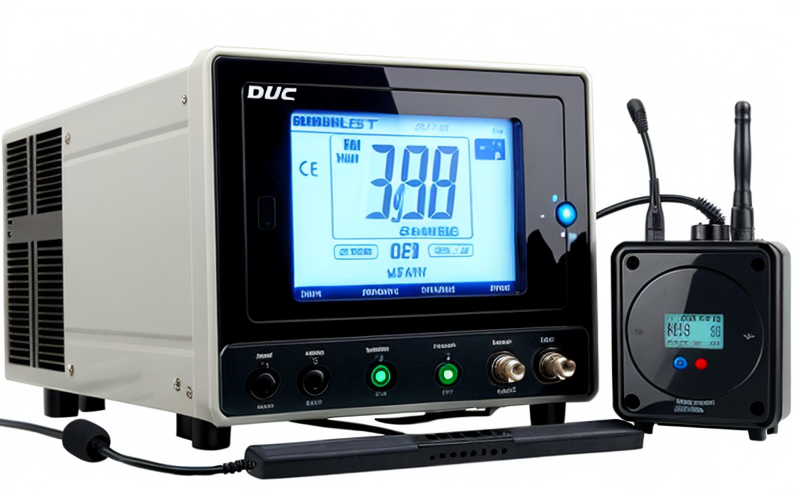IEEE 1528 SAR Testing for Mobile Phones and Wireless Devices
The Specific Absorption Rate (SAR) is a measure of the rate at which radio frequency (RF) energy is absorbed by the human body. IEEE Std 1528-2019 provides guidelines for determining the SAR level in mobile phones and other wireless devices. This standard ensures compliance with international safety regulations, protecting users from excessive RF exposure.
The testing process involves placing a device in a standardized phantom that simulates the human body. The phantom is then exposed to various levels of RF energy while the absorbed power density (SAR) is measured. Compliance requires that SAR values do not exceed specified limits set by regulatory bodies such as the FCC, ICNIRP, and others.
Our laboratory offers comprehensive IEEE 1528 SAR testing services tailored for mobile phones, smartwatches, wireless headphones, and other personal electronics. Our team of experts ensures accurate measurement and interpretation of results to meet strict industry standards.
The importance of this testing cannot be overstated. Compliance with IEEE 1528 helps manufacturers avoid costly recalls and legal issues while ensuring product safety. It also enhances brand reputation by demonstrating commitment to consumer health and well-being.
In addition to standard compliance, we provide advanced SAR testing services that go beyond the minimum requirements. Our state-of-the-art facilities allow us to conduct tests under various environmental conditions, ensuring robust data for all market scenarios. This approach helps our clients stay ahead of regulatory changes and industry trends.
Our commitment extends to providing detailed reports tailored to each client’s needs. These reports include comprehensive analysis, recommendations for improvement if necessary, and actionable insights into potential risks associated with RF exposure.
Applied Standards
- IEEE Std 1528-2019: Guidelines for Determining the Specific Absorption Rate (SAR) in Mobile Phones and Other Wireless Devices
- FCC Part 15: Rules Governing the Use of Radio Frequency Energy
- ICNIRP Guidelines on Limits of Exposure to Time-Varying Electric, Magnetic and Electromagnetic Fields (up to 300 GHz)
The IEEE Std 1528-2019 is widely recognized as the most comprehensive standard for SAR testing. It provides detailed procedures for measuring SAR in various types of wireless devices. Compliance with these standards ensures that products meet international safety requirements.
Our laboratory adheres strictly to these guidelines, ensuring accurate and reliable results. By doing so, we help our clients maintain compliance not only in the United States but also globally where similar regulations apply.
Scope and Methodology
The scope of IEEE 1528 SAR testing includes all mobile phones, smartwatches, wireless headphones, and other personal electronic devices that emit radio frequency energy. This testing is crucial for ensuring the safety of users who may be exposed to this radiation during normal use.
To conduct these tests, we use advanced instrumentation such as vector network analyzers (VNAs), power meters, and specialized software designed specifically for SAR measurement. The phantom used in our testing simulates a 50% body weight adult male or female, depending on the device being tested.
The methodology involves placing the device inside the phantom and exposing it to different levels of RF energy. The absorbed power density (SAR) is then measured at multiple locations within the phantom. This process allows us to determine the maximum SAR value for the device under test.
Once the measurements are complete, we analyze the data using statistical methods to ensure accuracy and repeatability. Compliance with IEEE 1528 requires that the maximum SAR value does not exceed specified limits set by regulatory bodies.
Competitive Advantage and Market Impact
- Comprehensive Testing Capabilities: Our laboratory offers a full range of IEEE 1528 SAR testing services, ensuring comprehensive coverage for all types of wireless devices.
- State-of-the-Art Facilities: Equipped with the latest instrumentation and software, our facility provides accurate and reliable results. This ensures that clients can trust our findings.
In today’s competitive market, compliance with international standards is essential for maintaining a strong brand reputation. By offering IEEE 1528 SAR testing services, we help our clients stay ahead of regulatory changes and industry trends. Our commitment to accuracy and reliability sets us apart from competitors who may offer less thorough or outdated testing methods.
Compliance with IEEE 1528 is not just about avoiding legal issues; it’s also about enhancing product safety and protecting user health. By providing accurate SAR measurements, we help our clients build trust with consumers who value safety and quality.
In conclusion, our comprehensive IEEE 1528 SAR testing services offer a competitive advantage in the market by ensuring compliance with international standards while providing detailed reports that help guide future product development. This ensures that our clients can stay ahead of regulatory changes and industry trends, maintaining their competitive edge in an ever-evolving marketplace.





